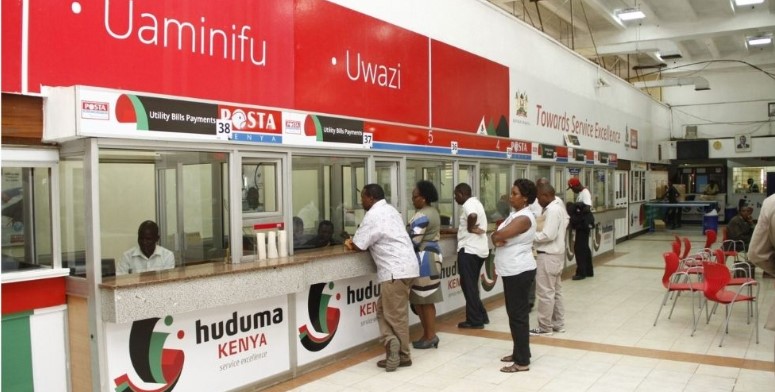Family of former powerful PS Hezekiah Oyugi loses bid to reclaim prime Lavington property

The judge noted that the case presented a troubling scenario in which a party attempted to use a forgery of its own making to undo a transaction it had previously accepted, both by word and conduct.
The family of Hezekiah Oyugi, a once-powerful Permanent Secretary during President Daniel Moi’s era, has lost its long-running legal battle to reclaim a high-value property in Nairobi’s Lavington estate.
Justice Oscar Angote of the Environment and Land Court dismissed the family’s case, ruling that the buyer, Timdar Said Sherman, could not be faulted for acquiring the title through a court order which, it emerged, had been forged by the Oyugi estate itself.
More To Read
“In my view, these are actions of parties who wish to unjustly enrich themselves with the sanction of the court, a position that a court of equity and justice cannot countenance,” said Justice Angote in his judgement.
The estate administrators, Job Okuna, Douglas Odhiambo and Joshua Onyango, had filed the suit in 1998, accusing Sherman of forging documents to unlawfully transfer the property to herself after allegedly failing to complete payment.
However, the court found it was the Oyugi family who had obtained a forged court order dated December 21, 1993, which was later used on February 20, 1998, to facilitate the transfer of the property to Sherman.
“It is unfortunate that the administrators of the estate expect the court to condemn Sherman and cancel the title on the grounds that it was obtained using a forged court order and transfer, after the family had already received the entire purchase price,” Justice Angote said.
The judge noted that the case presented a troubling scenario in which a party attempted to use a forgery of its own making to undo a transaction it had previously accepted, both by word and conduct.
Evidence on record, he ruled, confirmed the family had willingly sold the land to Sherman, but was now seeking to renege on the agreement.
“This raises fundamental questions not only of law, but also of fairness, integrity and abuse of process. The administrators, having procured the forged court order, cannot rely on it to avoid the consequences of a transaction they had previously affirmed,” said Angote.
The administrators also accused the then Lands Commissioner of facilitating the transfer through fraudulent means.
Court documents show that the family and Sherman entered into a sale agreement on January 13, 1998, agreeing to sell the property for Sh10 million.
Sherman was to pay Sh4.8 million upfront and deposit the balance at the now-defunct Guilders International Bank.
The family argued that Sherman, who had been a tenant at the property, failed to pay the full purchase price and instead used forged documents to take ownership while succession matters were still pending before the court.
Okuna testified that between 1993 and 1994, the late Oyugi had allowed Sherman to remain as a tenant, with rent collected by Betty Oyugi, one of Oyugi’s four wives.
The family claimed the property had not been transferred to any beneficiary and therefore remained part of the estate.
After learning that Betty was still collecting rent from Sherman, the administrators instructed auctioneers to recover the outstanding rent. It was during this process that they discovered an attempt by Betty to sell the property to Sherman, an action they argued she had no legal authority to undertake.
Sherman told the court that she and her husband, Mzahim Salim Bajaber, began living in the house in 1991, paying a monthly rent of Sh60,000.
She said that in 1994, Betty introduced herself as the owner and offered to sell the house for Sh11 million, claiming it had been gifted to her by her husband.
Sherman said she paid Sh4.8 million as a down payment and considered the remaining balance covered by rent already paid.
The two parties later formalised the arrangement through the 1998 agreement.
To support her case, Sherman produced three petty cash vouchers: two dated May 21, 1998, for Sh2.2 million and Sh2 million respectively, and a third dated June 11, 1998, for Sh1 million, all allegedly paid to Okuna.
She argued that the total of Sh5.2 million settled the balance of the purchase price. However, Okuna denied having signed the vouchers.
Top Stories Today
Reader Comments
Trending












































